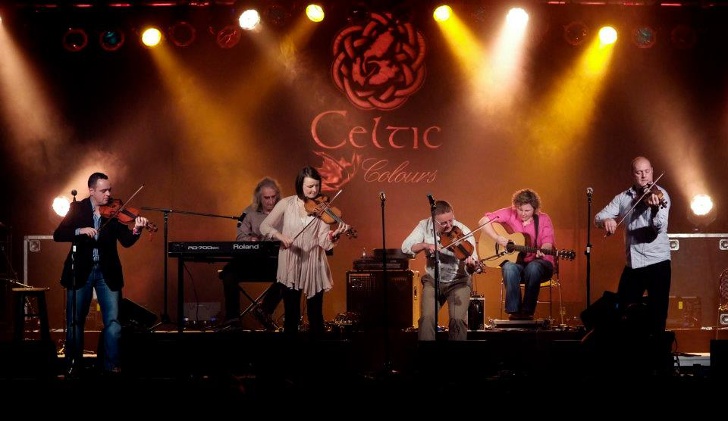The inaugural Celtic Colours Festival took place in 1997. Since its introduction, the festival has grown to become one of the main tourist attractions and cultural highlights of the province of Nova Scotia as well as one of Canada’s major musical events. The Celtic Colours Festival is unique because it is not limited to just one location. Concerts, workshops and other festival events take place in various towns and communities all over Cape Breton Island, transforming the island into one of the world’s largest festival venues.
Cape Breton Island was chosen to host the festival because a lot of its residents are descendants of 19th century settlers from Ireland and Scotland. Many of them still identify themselves as Irish or Scottish and maintain their culture and traditions. Many communities across Cape Breton Island have hosted local Celtic music and culture festivals for decades to celebrate Celtic culture and traditions. The Celtic Colours Festival simply united traditional local contests into one large event and gave them more publicity.
The Celtic Colours International Festival gathers musicians, singers, actors, storytellers and other artists from all over Canada and the United Sates as well as from Ireland, Scotland, England, Wales, Brittany, Spain, Germany, Denmark, Norway, Sweden, and even Cuba.
The program of the festival features traditional Gaelic singing, Cape Breton fiddling, bagpiping, accordion playing, local dance traditions. Attendees cannot see and hear everything because the festival has quite an ambitious schedule (up to six concerts a day), but festival-goers can still get a taste of everything the festival has to offer. Along with concerts, the programming features many workshops, art exhibitions, and community events such as dances and meals.
One of the most popular attractions of the Celtic Colours Festival is the Late Night Festival Club located at the Gaelic College in St. Ann’s. It opens every night as the evening concerts are closing. In the Festival Club, the artists are given an opportunity to perform in a more informal setting or to participate in a jam session with colleagues and friends from all over the world. Performance in the Festival Club is by invitation only. Although the bar has to close at 3 a.m. due to licensing issues, the music often continues well beyond that time.
In 2020, the event was held online due to the coronavirus pandemic.

Photo by Murdock Smith




